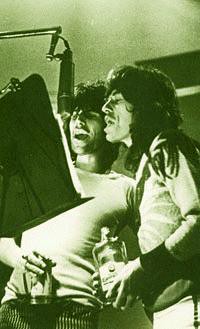(I started this response to Fatsacca's comment to my last post and got pretty fired up while drafting it. I couldn’t help myself. I'm still reeling at the loss this past Saturday. For those two people who might actually read it all here it is…)Fats,
Good to hear from you...
Ah, the peanut gallery. Every time an Army game is televised I always take a gander at our little corner of the stadium to see what's happening as I'm sure many others who spent their Saturday’s there along with us do.
Yes, Army has been beaten by many greats throughout my life as a brat at WP, but I was also fortunate enough to have lived there when the football program experienced a resurgence and became a force to be reckoned with in the mid to late 80's and into the 90's. The legend reads like this:
Jim Young took a defeated Army team over from Ed Cavanaugh after Young left Purdue in 1983. In five years with Purdue, Young had amassed a 38-19-1 record. Not bad. He came to a cellar dwelling program at Army and in his first year goes 2-9, including another demoralizing loss to Navy on the pitch at the Rose Bowl in Pasadena. Army football fans sighed a big “Whatever…”. On the plane ride back from Pasadena it is said that Young’s offensive coordinator sat down next to him and conceded to his boss that the caliber player Army is able to recruit will never have the capability to keep up with the bigger schools and their ever expanding passing schemes, and the only way to effectively compete against them is to find a way to keep their opponents offense off the field. He suggested to Young that Army dust off the Wishbone playbook and implement it right away.
Who knew at the time what a stroke of genius this was. Smaller, simpler playbook, focused on what cadets CAN do vs. attempting make them do what they CAN’T. A discipline and decision based offense that kept an opponents offense off the field and made their big fat defensive linemen huff and puff while they chased these little cadets all over the field down after down, play after play. Young must have thought at this point, "What the hell do I have to lose".
It was boring to some to watch for some, but in 1984 its effectiveness could not be denied. Young took Army to an 8-3-1 record the following year grinding it out on the ground yard by yard. They tied Tennessee IN TENNESSEE stunning everyone with even the slightest interest in the college game. Their winning record earned them a bid to play in the inaugural Cherry Bowl where they beat a heavily favored Michigan State. That season, if Army happened to find themselves down ten points late in the fourth quarter, Young determinedly stuck to his game plan and taught the cadets the same patience and discipline. The following year, they went 9-3 and beat Illinois in the Peach Bowl here in Atlanta. In those two years the Army team finished RANKED number twenty-two in the nation both seasons! The following two years of the Young era saw the Army team play to consecutive .500 records (one highlight of the 1985 season was an Army VICTORY over Tennessee in Knoxville). On the heals of their success, the program began putting tougher opponents on the schedule at the same time losing a couple of key backfield and offensive line players to graduation. But college football is cyclical, and in 1988 Army went 9-3 and played tough, but lost to a heavily favored Alabama in the Sun Bowl and by a one point margin.
The following two years had Army going 6-5 in each, but the program was riding high and stacking up year after year wins over Navy. Added to that was a couple of wins over Air Force that kept fans and The Corps energized. Jim Young left at the end of the 1990 season. He was heard to comment that in order to sustain a winning program at West Point, a coach must maintain a level of energy that can take years off an older man’s life. He was exhausted. The team was handed to Bob Sutton, Young’s offensive coordinator who served under him his entire time as head coach at Army. Sutton struggled for the next few years as Army opponents began to take the wishbone seriously and actually took to practice against it in preperation to play Army. In Sutton’s first five years the Army team was better than .500 only once, but the key to him keeping his job was beating Navy and other teams Army was SUPPOSED to beat (something they haven’t been able to do for a long time now). Then, in 1996, hard work paid off and Sutton took Army to a 10-2 record, one of the two losses coming against Auburn at the Independence Bowl where Army missed a last second field goal that would have tied the game and sent it into overtime. Auburn coach Terry Bowden only weeks before had threatened to turn down such a “lowly” bowl invitation and had publicly denounced Army as an unworthy opponent to his sagging football factory. After nearly losing to Army in one of the most exciting games I've ever watched, he earnestly apologized in front of the cameras. This author here will never forgive his arrogance and to this day I turn him off when he appears on television.
On the strength of the 1996 season, the academy made a colossal blunder, a gaph of epic proportions. It was announced that beginning with the 1998 season Army would be joining the marginal Conference USA not just in football, but many of the academy’s other sports as well. Sutton struggled against conference opponents whose teams were made up of creeps and thugs who rarely, if ever, set foot in a classroom their entire college careers. After struggling in two years of conference play, Sutton was unceremoniously sacked on the street outside the gates of Philadelphia’s Veteran Stadium after losing to Navy for the second time in three years. The deed was carried out by West Point’s newly anointed Army AD Rich Greenspan who had plans of his own. We would all soon find out that the hiring of Greenspan as Army’s Athletic Director would become added insult to injury to our battered and beloved Army team.
In hindsight there were many, including myself, who thought Sutton was the only problem. He failed to upgrade the wishbone with ANY passing component at all like many other option schools were doing, but we now know that joining a conference, especially Conference USA, was the real bonehead move and contrary to the mission of the academy. Those of us who were lucky enough to have basked in the glory of all those Jim Young years were lusting after bigger bowl games, ESPN highlight reels, and top 25 rankings. We’d simply been blinded by light of college football glory. Army football had become bigger than the academy’s mission to many close to it. If there were those that didn’t understand how upside down this thinking was, the events of 9/11 set them straight including your humble author.
As Malcolm McDowell’s character in ‘A Clockwork Orange’ narrates as he is driven to suicide, “This is the sad and weepy part oh my brothers…”. Most Army football fans waited with hope filled anticipation (guarded as it may have been) for search committees to be formed and candidates to be vetted through the winter that followed Sutton’s horribly handled firing (this is a guy who served the academy faithfully for sixteen years, through up’s and down’s and was rudely handed his hat on the streets of Philadelphia. He is now the defensive coordinator for the NY Jets). Much to our collective shock and barely 10 days after announcing the commencement of a national search, Greenspan abruptly announced he was hiring his good buddy and coach of his former Div IAA institution Illinois State. Shock at the announcement could be felt throughout the Army football community, but most just thought, “Well, they’ve got to know what there their doing up there, right?”.
The four seasons that followed made the Conference USA decision look like a stroke a sheer brilliance. Together Todd Berry and Rich Greenspan, neither of who had ANY comprehension whatsoever of West Point and its unique challenges, completely decimated the Army football program beyond anything ever seen before. Berry and Greenspan quickly alienated the prep school coaches, recruiting staff, and scouts with their ineptitude and lack of understanding of what kind of individual comes to West Point. In his first press conference, Todd Berry arrogantly made grandiose predictions of undefeated seasons and bowl game invites as he abandoned entirely Army's option offense for the West Coast variety. Todd Berry and Rich Greenspan collectively amassed a shameful record of 5-36 in their four year tenure, including an NCAA Div IA record of thirteen losses in a single season (scheduling an extra game against an emerging Hawaii by skirting the NCAA rules about maximum number of games allowed to be played on the continental U.S. Just another Berry/Greenspan blunder). Take a minute to let that sink in: won five games in four seasons and never beat Navy. There were cadets that entered West Point and played all four seasons and won only five games. Players who were now newly minted 2nd Lt.’s reporting to units deployed in battle who won only one game in two seasons, three in another and went 0-13 in their last. Wow.
The Superintendent mercifully fired Berry midway through the 0-13 season and Greenspan ducked out in the summer that followed. Greenspan along with his associated stink were picked up as AD at Indiana where he immediately got their storied basketball program in hot water. He was most recently fired for ruining yet another program. Todd Berry kicked around in Div IAA for a year or two before ending up on Miami’s coaching staff as a QB coach. Miami finished in the basement of the ACC that year and Coker along with most of his staff were fired. The Miami football program was a train heading off the rails.
That leads us into recent history in which Bobby Ross feels a patriotic duty to come out of comfortable retirement and restore respectability to the Army football program. A good guy doing it for the right reasons. Berry to Ross, what a change. The game wasn’t televised, but on October 9th 2004 when Army miraculously defeated fellow Conference USA opponent Cincinnati for their first home win in a very long time, the Corps stormed the field, tore down the goal posts, carried them down the hill, and erected them in the Superintendent’s front yard. I was lucky enough to have seen the celebration late Saturday night on ESPN College Football Round Up. I’m not at all afraid to admit tears were welling up as I watched.
So hear we are. Ross found out the hard way what Jim Young had discovered years earlier about the youthful stamina required to win at West Point in this day and age. The bottom line is this: In order to be successfully at Army, one must understand all that I have written above to a depth far greater than an outsider such as me possesses. Understand the kid who goes to West Point, not just to play football for 3-4 years, but his goals and aspirations military and otherwise, know who his family is, what motivates him, what his strengths and weaknesses are, and of course understand the primary mission of the academy. A coach at Army will NEVER have his players daily attention as long as his civilian counterparts do with their players. Army football players (Navy and Air Force for that matter) will never enjoy rock star like lives on campus and all the other spoils that come with playing football at a Div IA school. The head coach at Army needs to have a strong desire to be a part of West Point, it’s community, and share in his players off field cadet experience just as much as he wants to win games, because winning games is sometimes a rarity.
A winning program can be restored at West Point as they have at Air Force and Navy over the years. Both of these rivals have simply done what we all know needs to be done at West Point (Paul Johnson WILL win at Georgia Tech and anybody who takes them lightly will be sorry they did). We know the formula that works. We don’t need to drop to Div IAA play, and we don’t need to dangle shorter military commitments to attract better football players. We need to hire a competent option offense coach. Not a big name guy who flinches at 5-7 seasons, someone who wants to be there. Who wants to beat Navy and Air Force as much as The Long Gray Line does. I've seen what is needed with my own eyes and it happened regularly every Saturday while living at West Point in the late 80’s and early 90’s.
There is much to admire about any individual who decides to attend West Point. Its four years of days from pre-dawn to dusk filled with academic and physical activity that most of us could never endure. I know I couldn’t then or now. Being a football player at West Point in addition to the normal rigors of cadet life is beyond comprehension to me. As I said in my previous post, the Long Gray Line, The Corps, and fans everywhere deserve better than what they’ve had for the last decade and action should be taken immediately to make it right.



























